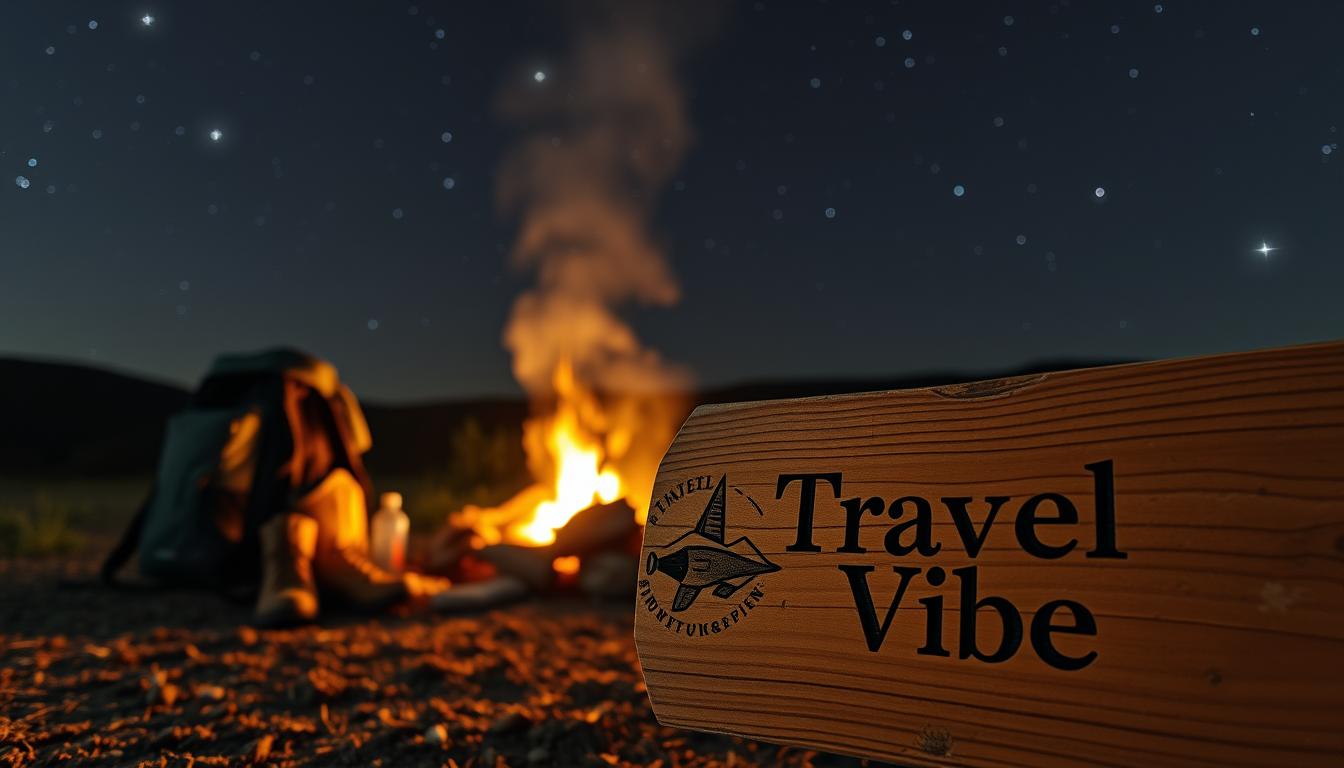Did you know that backpacking can be a liberating way to explore the world without breaking the bank? The allure of distant lands and unfamiliar cultures beckons many, but the perceived cost often holds them back. At CoWrit Technologies Inc, we believe that with the right budgeting strategies and travel tips, you can experience the richness of our world without emptying your wallet.
Our comprehensive guide will walk you through everything from pre-trip planning to on-the-road money-saving strategies, helping you extend your journey and enhance your travel experience. By adopting a backpacker’s mindset, you’ll prioritize what truly matters during your adventures, leading to more meaningful cultural exchanges and authentic local experiences.
Key Takeaways
- Discover how to plan your trip on a budget without sacrificing quality experiences.
- Learn effective money-saving strategies for backpackers.
- Understand how to prioritize what truly matters during your travel adventures.
- Explore the benefits of adopting a backpacker’s mindset for authentic experiences.
- Find out how CoWrit Technologies Inc’s services can help you plan your budget adventures.
The Backpacker’s Mindset: Why Less is More
At the core of backpacking is a philosophy that champions simplicity and freedom. Backpacking is a form of travel that is deeply rooted in independence and a budget-conscious approach to exploring the world. It’s about embracing the unknown and finding value in the experiences and connections made along the way.
As we delve into the backpacker’s mindset, it becomes clear that this way of traveling is not just about saving money, but about adopting a lifestyle that prioritizes experiences over material possessions. By shedding excess possessions and expectations, travelers can create space for more authentic connections with the places they visit and the people they meet.
The backpacker’s approach to travel is characterized by a shift in focus from consumption to experience. This mindset values moments and memories over souvenirs and luxury, leading to a more fulfilling and meaningful travel experience. As one seasoned backpacker noted, “Traveling with less allows you to see more of the world and less of the stuff that clutters it.”
By traveling with less, backpackers can enjoy greater flexibility and spontaneity, often leading to more rewarding adventures. This “less is more” approach can also reduce stress, lower costs, and create a more sustainable way to explore the world. It’s not about deprivation, but about prioritization – choosing what truly adds value to your travel experience.
Adopting the backpacker’s mindset can have a profound impact not just on your travels, but on your outlook on life and consumption habits back home. As we explore this mindset further, it becomes clear that the principles of backpacking can lead to a more mindful and fulfilling way of living.
Smart Pre-Trip Planning That Saves Money
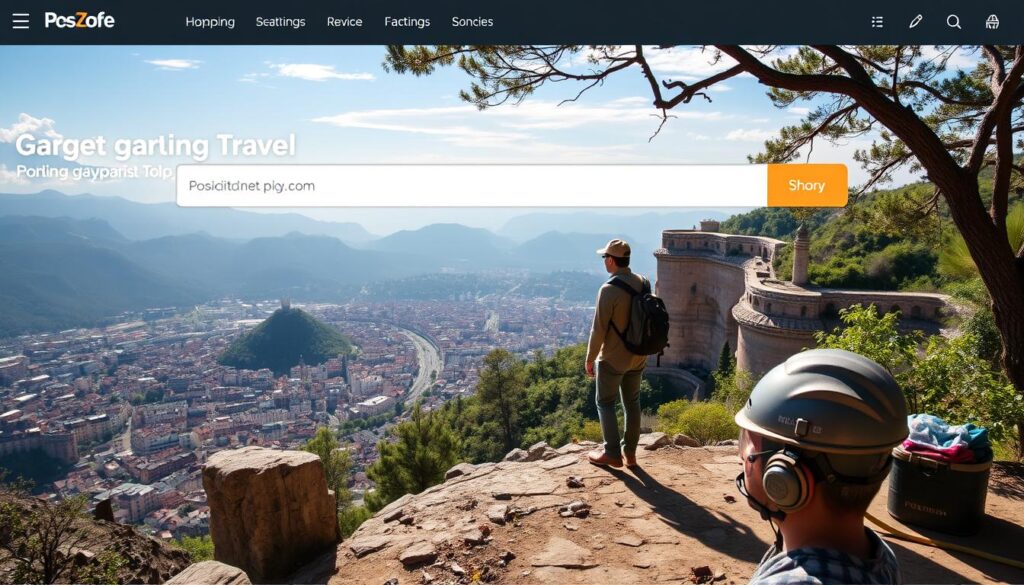
The art of saving money on travel begins long before you reach your destination. Effective planning is crucial for a budget-friendly trip. One of the primary strategies is being flexible with your travel dates and destinations.
Flexibility is key because prices for accommodations and flights vary greatly depending on when you travel. Whenever possible, plan your trip during the off-season. Not only will you enjoy cheaper prices, but you’ll also encounter fewer tourists in popular destinations. If you can’t be flexible with your dates, try to be flexible with your destination. For more budget travel hacks, explore our comprehensive guide.
Pre-Trip Planning Checklist
To save money, it’s essential to have a comprehensive pre-trip planning checklist. This includes researching destination-specific costs to plan a budget that accounts for regional price variations.
Understanding visa requirements and costs in advance can help you avoid expensive last-minute applications or unexpected fees. Additionally, considering travel insurance can provide essential protection without breaking the budget.
Utilizing digital tools and apps can significantly aid in budget planning and expense tracking before and during your trip. These tools offer valuable tips on managing your money effectively while traveling.
Pre-booking certain accommodations or activities can secure lower rates while maintaining flexibility for the rest of your itinerary. This strategic planning helps in cutting down overall costs and enhancing your travel experience.
Choosing Budget-Friendly Destinations
One of the key lessons for budget travelers is that some destinations are more affordable than others. The price disparity around the world means that your daily travel budget can go much further in certain countries.
Regions such as Southeast Asia and Central and South America are known for being particularly budget-friendly. In these areas, the cost of living is lower, and your money can stretch further, allowing for a more extensive travel experience.
The currency exchange rate can significantly impact your travel costs. In some countries, favorable exchange rates can make luxury experiences affordable even on a tight budget. For instance, countries with weaker currencies against the US dollar can offer great value for travelers.
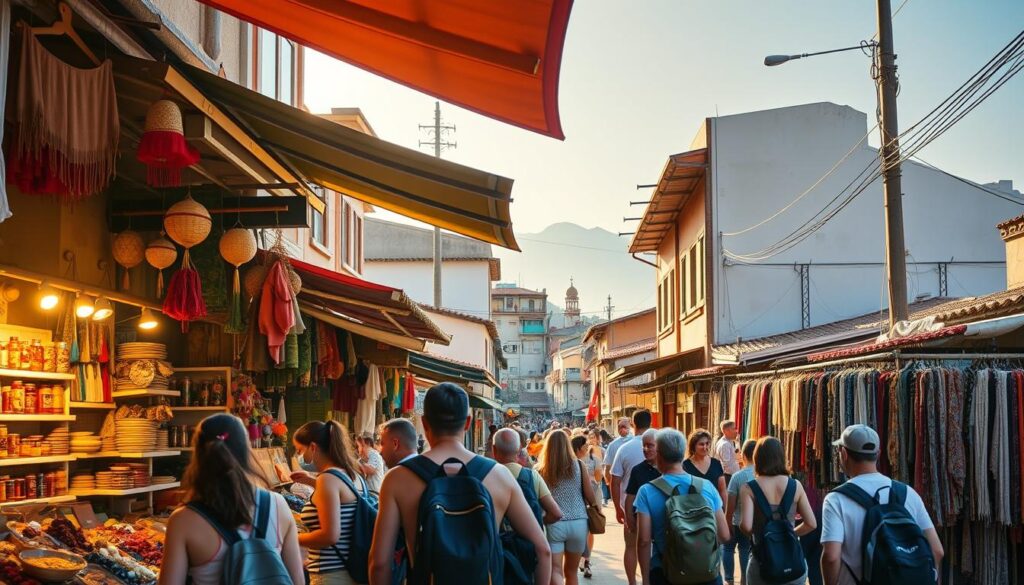
When planning your trip, researching the cost of living in potential destinations is crucial. This helps you make informed decisions about where to spend more or less time. It’s also essential to consider safety; just because a place is cheap doesn’t mean it’s dangerous.
Traveling to less-touristed places can not only save you money but also provide more authentic cultural experiences. Identifying emerging destinations before they become popular can be a great strategy for budget travelers.
Balancing your itinerary between more expensive and affordable countries can help stretch your overall travel budget. Additionally, considering the time of year you visit can significantly affect both costs and experiences, as prices can vary by season.
Essential Gear Investments That Save Money Long-Term

While it might appear expensive upfront, purchasing quality backpacking gear can lead to significant savings over time. The concept of “buy once, cry once” is particularly relevant when it comes to gear that will be used extensively throughout your travels.
Investing in a durable backpack is a prime example. A high-quality backpack can withstand the rigors of long-term travel, reducing the need for frequent repairs or replacements. When selecting a travel backpack, look for features such as reinforced materials, comfortable suspension systems, and weather-resistant designs.
Another crucial investment is a good water purification system. In many countries, tap water is not safe to drink, and relying on bottled water can be expensive and environmentally unfriendly. A water purification system can provide safe drinking water, saving you money and reducing plastic waste.
Multi-purpose gear is also worth considering. Items that serve more than one function can reduce the overall amount of equipment you need, saving both money and pack weight. Examples include a sarong that can be used as a blanket, towel, or dress.
When it comes to technology, being mindful of what’s truly necessary can help you save money. While a smartphone and portable charger are essential for most travelers, other gadgets like laptops or cameras might be less critical, depending on your needs.
To maximize your savings, look for quality gear at discounted prices through sales, outlet stores, and gently used equipment. Conducting a cost-benefit analysis of certain gear investments can also help you understand how they pay for themselves over the course of extended travel.
Budget-Friendly Travel Hacks for Backpackers: Accommodation Strategies
The quest for affordable accommodation is a crucial aspect of budget travel, and backpackers have a variety of options to choose from beyond traditional hotels.
Hostels are a popular choice among budget travelers, offering dormitory-style rooms with shared facilities at significantly lower prices than hotels. Prices for hostels can range from $10 to $50 per night, compared to hotels which often start at $70 or more. While hostels are sometimes associated with a younger crowd, they are generally safe, secure, and provide excellent value for travelers of all ages.
When selecting a hostel, it’s essential to prioritize amenities and consider the social atmosphere. Many hostels now offer private rooms in addition to dorms, catering to a wider range of travelers. This trend, known as “poshtels,” provides an affordable middle ground between dorms and hotels.
To make the most of hostel stays, backpackers should be aware of strategies for finding last-minute deals and navigating booking platforms. Longer-term stays can also be beneficial, as many hostels offer weekly or monthly rates for travelers who can slow down their pace.
When evaluating accommodation options, it’s crucial to weigh location against price. While central locations may be more convenient, they often come with a higher price tag. In some cases, staying further out can be a cost-effective option, especially if public transportation is readily available.
Safety is another key consideration, particularly for solo travelers or those in unfamiliar destinations. Researching the hostel and reading reviews from other travelers can help mitigate risks.
Seasonal pricing variations can also impact accommodation costs. Being flexible with travel dates and adjusting your accommodation strategy accordingly can help save money.
| Accommodation Type | Typical Cost | Pros | Cons |
|---|---|---|---|
| Hostel Dorm | $10-$30 per night | Social atmosphere, affordable | Shared facilities, less privacy |
| Hostel Private Room | $30-$50 per night | More privacy, still social | More expensive than dorms |
| Hotel | $70+ per night | Private facilities, more amenities | Expensive, less social |
By understanding the pros and cons of different accommodation options and being mindful of costs, backpackers can make informed decisions that fit their budget and travel style.
Hostel Hacks: Maximizing Value and Experience

Hostels offer a unique blend of affordability and social interaction that can enhance any travel experience. Beyond the cost savings, hostels often foster a vibrant social atmosphere, providing opportunities to meet fellow travelers in common areas and shared kitchens, which can also help reduce food expenses.
Many hostels also offer private rooms for those who desire a bit more personal space at a still relatively budget-friendly price point. Resources like Hostelworld and Booking.com are invaluable for finding and booking hostels worldwide. The diversity in hostel options caters to various travel styles, ranging from lively party hostels to more relaxed and quiet ones.
To get the most value from your hostel stay, consider the following tips: effectively use hostel common areas and facilities to enhance your travel experience while saving money on external services. Working with hostel staff can provide local insights, including recommendations for affordable, authentic experiences in the area.
Maintaining privacy and getting quality rest in shared dormitory settings requires some strategy. Selecting the right type of hostel for your personal travel style is also crucial, whether you’re looking for a social atmosphere or a quieter environment. Using hostel kitchens effectively can reduce food costs and create opportunities for social connection.
Leveraging hostel networks and loyalty programs can lead to ongoing savings throughout your journey. Being a considerate guest by following common hostel etiquette can lead to better experiences and potential perks. By implementing these strategies, you can maximize your experience and make the most of your stay in a room that fits your needs.
Free Accommodation Techniques: Couchsurfing, Volunteering, and House-Sitting

Couchsurfing, volunteering, and house-sitting have revolutionized the way travelers experience new destinations without the hefty price tag of traditional accommodations. For those seeking truly free accommodation and a deeper cultural exchange, these options stand out as remarkable opportunities.
At the forefront is Couchsurfing, a network that connects travelers with locals who offer a spare sofa or room for free, often with the expectation of social interaction and cultural exchange. Beyond the financial benefit, Couchsurfing provides invaluable opportunities to gain local insights and forge genuine connections with people in your destination.
To make the most of Couchsurfing, it’s crucial to create an appealing profile and prioritize safety by getting to know potential hosts beforehand through the platform’s messaging system and reviews. Other platforms like WWOOF, Workaway, and HelpX offer work exchange programs where travelers can stay for free in exchange for their time and skills.
House-sitting is another avenue for free accommodation, where individuals take care of someone’s home in exchange for staying there. Building a trustworthy profile and securing desirable assignments are key to success in this area.
Volunteer programs that include accommodation are also worth exploring, as they create mutual benefits for both the traveler and the hosting organization. By participating in these programs, travelers can experience a new place while contributing to meaningful projects.
Across these platforms, building and maintaining a positive reputation is vital to securing free accommodation. This involves being respectful, reliable, and open to cultural exchange.
By embracing these free accommodation techniques, travelers can enjoy more authentic local experiences than traditional accommodations often provide. Whether through Couchsurfing, volunteering, or house-sitting, the opportunities to connect with locals and immerse oneself in the culture of a new destination are vast and rewarding.
Transportation Strategies That Slash Travel Costs
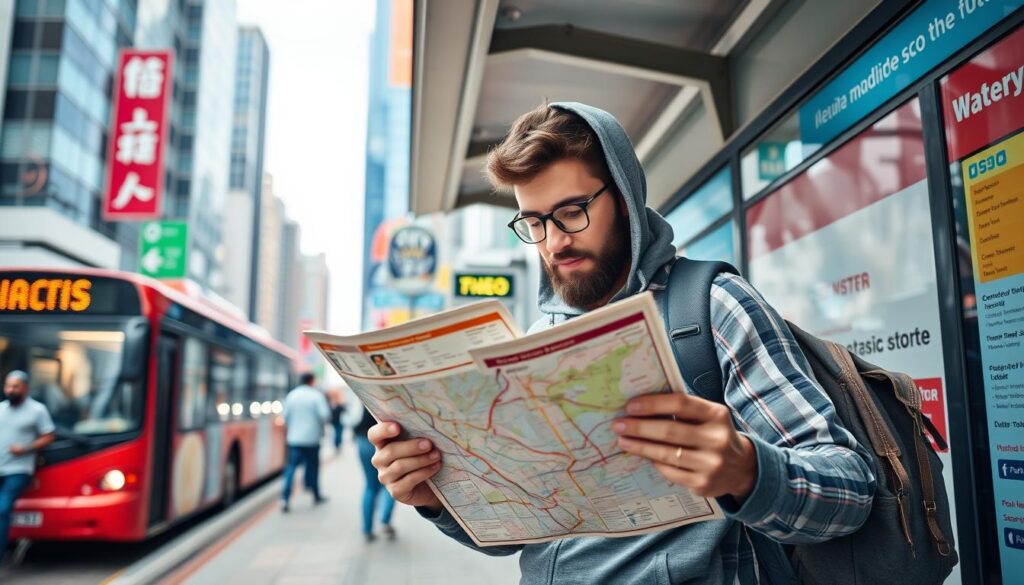
For backpackers, navigating the world without breaking the bank starts with mastering affordable transportation options. Getting from place to place without overspending requires a thoughtful approach to transportation.
Public transport is a backpacker’s best friend, offering a cost-effective way to navigate within cities and travel between towns. Buses, trains, trams, and metro systems are often significantly cheaper than taxis or private car rentals. In cities, researching and purchasing daily or weekly passes can lead to substantial savings compared to buying single tickets for each journey.
When it comes to finding affordable flights, several strategies can help. Optimal booking windows, budget airlines, error fares, and alternative airports can significantly reduce flight costs. For instance, booking flights well in advance or at the right moment can lead to substantial savings.
Benefits of Public Transportation
Public transportation systems are not just economical; they also offer a great way to explore cities and towns. Tips for navigating unfamiliar systems include researching routes in advance and using travel apps to simplify your journey.
Transportation passes and tourist cards can provide significant savings for travelers planning multiple journeys. These passes often cover various modes of transport, making it convenient and cost-effective to travel.
Overnight Transportation Options
Overnight transportation options, such as night buses or trains, serve the dual purpose of getting you to your destination while saving on accommodation costs. This strategy can be particularly useful for long-distance travel.
When choosing transportation methods, it’s essential to balance time and money considerations. While the cheapest option might be tempting, consider the time it takes and whether it’s worth paying more for efficiency.
Regional transportation considerations vary widely. Certain methods may be particularly cost-effective in specific regions or should be avoided altogether. Understanding these nuances can help backpackers make informed decisions.
Digital tools and apps can significantly simplify the process of finding affordable transportation options. From route planners to fare comparison apps, technology can be a valuable ally in reducing travel costs.
The Hitchhiker’s Guide to Free Travel
As we continue our journey through budget backpacking tips, hitchhiking emerges as a viable option for free travel. This method of transportation can be a game-changer for those looking to explore new places without the burden of expensive tickets.
Hitchhiking is not just about getting from one point to another; it’s an experience that opens doors to new interactions with people and unexpected adventures. While it may not be suitable for everyone, many travelers have successfully used this method to traverse vast distances.

One of the key benefits of hitchhiking is its cost-effectiveness. For instance, a bus ticket from Delhi to Manali in India can cost at least $20 for air-conditioned travel. In contrast, hitchhiking allows you to travel this distance free, saving money that can be used for accommodation or other travel expenses.
Practical Tips for Successful Hitchhiking
- Choose the right location: Busy highways or roads leading out of towns are often good spots.
- Be visible and clear: Use a sign indicating your destination to attract drivers.
- Dress appropriately: Wear clean, neat clothing to make a good impression.
- Be prepared: Carry a backpack with essentials and be ready to move at short notice.
Safety is a crucial consideration when hitchhiking. It’s essential to trust your instincts and not get into a vehicle if you feel uncomfortable. Additionally, sharing your travel plans with someone you trust can add an extra layer of safety.
Hitchhiking is not just about the way you travel; it’s also about the people you meet along the way. Many travelers have formed lasting connections with fellow hitchhikers and drivers. For those who are hesitant to hitchhike, alternative options like organized carpooling platforms can offer a similar experience with a different structure.
In conclusion, while hitchhiking may not be for everyone, it remains a viable and exciting option for travel on a budget. By understanding the cultural nuances, being prepared, and taking necessary safety precautions, travelers can enjoy this unique way of exploring new places, all while keeping their expenses low, much like avoiding the cost of a taxi ride.
Street Food Adventures: Eating Well for Less
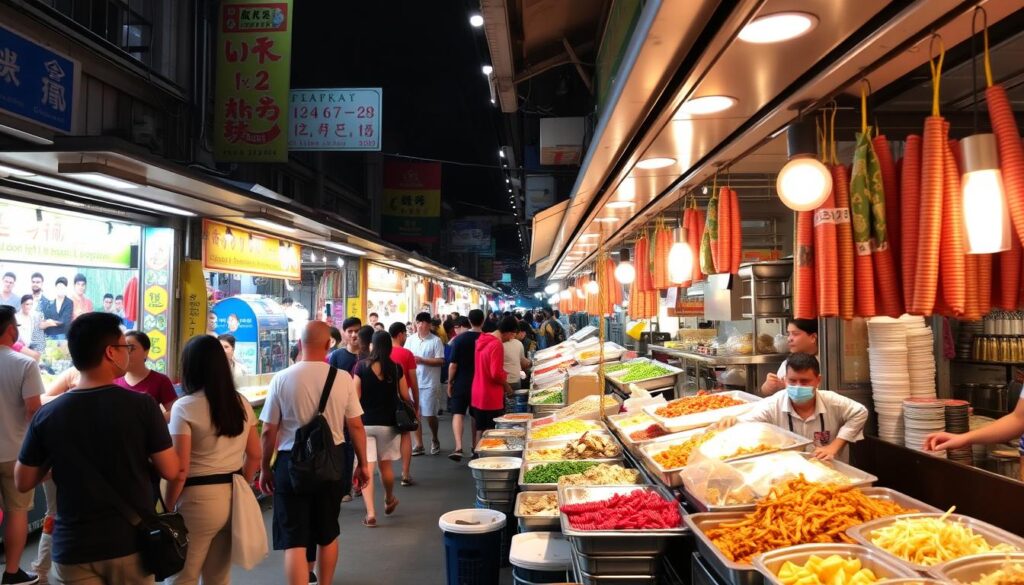
Street food is not just a budget-friendly option; it’s a gateway to the authentic flavors and culinary traditions of the places you visit. When we travel, we often look for ways to experience the local culture, and food is a significant part of that. By opting for street food, we not only save money but also get to enjoy meals that are both delicious and authentic.
Eating at local street stalls or markets allows us to dive into the heart of a destination’s food scene. From the pad thai vendors on Khao San Road to the tortilla ladies of Antigua, local food is both affordable and plentiful. We should look out for steaming hole-in-the-walls, pancake wagons, and fruit stalls, as they often serve the most authentic and tasty meals at very reasonable prices.
To make the most of our street food adventures, it’s essential to know how to identify safe vendors. We can look for stalls or vendors with a high turnover of customers, as this usually indicates that the food is fresh and popular among locals. Observing local eating patterns can also give us cues about which vendors are trustworthy.
Regional street food specialties are worth seeking out, as they offer a taste of the local culture and are often exceptionally good value. Whether it’s trying the local skewers in Southeast Asia or sampling the street tacos in Mexico, we should be adventurous and open to new culinary experiences. Moreover, engaging with street food vendors can lead to meaningful cultural exchanges and insights into daily local life.
When communicating with vendors, language barriers can sometimes be a challenge. However, learning a few key phrases in the local language, such as “How much does this cost?” or “I’ll have one of those, please,” can go a long way. Additionally, using gestures and pointing can be effective ways to order. Food markets are also great alternatives to street stalls, offering a variety of options and sometimes even seating.
As we enjoy the local street food, it’s also important to be mindful of our digestive health. Gradually introducing new foods into our diet can help build tolerance. By being informed and cautious, we can enjoy the rich culinary delights that street food has to offer while maintaining our health and budget.
Self-Catering Secrets for Budget Travelers
Self-catering can be a game-changer for budget travelers, allowing them to prepare their own meals and cut down on expenses. When you’re traveling, especially in regions like Europe, Australasia, or South America, cooking your own meals can lead to significant savings compared to eating out every time.
One of the key strategies for successful self-catering is shopping at local markets and grocery stores. Even without knowing the local language, you can identify the best value options by observing what locals buy and using simple translation tools on your phone. For instance, purchasing staples like noodles, pasta, and vegetables can be very cost-effective. With a backpacking stove, you’re not limited to hostel kitchens and can cook wherever you are.
To enhance your self-catering experience, it’s essential to have the right portable cooking supplies. A spice kit can make a big difference in the flavor of your meals, and collapsible containers are handy for storage and preparation. Simple recipes that require minimal ingredients and equipment are ideal for hostel kitchens or portable stoves. Consider preparing dishes like pasta with marinara sauce, stir-fried noodles with vegetables, or omelets.

Many hostels offer communal cooking facilities, which not only save you money but also provide a great opportunity to meet fellow travelers. Sharing meals can lead to new friendships and cultural exchanges. As one seasoned traveler noted, “Cooking together in hostels creates a sense of community among travelers.”
“The art of cooking is not just about sustenance; it’s about sharing cultures and creating memories.”
When self-catering, it’s crucial to consider food storage and safety, especially in warm climates without reliable refrigeration. Using airtight containers and keeping perishables to a minimum can help. Regional variations also play a significant role in the viability of self-catering; in some areas like parts of Asia, eating out is so affordable that cooking your own meals may not offer significant savings.
Balancing self-catering with occasional restaurant meals allows you to experience local cuisine without breaking your budget. By adopting a flexible approach to dining, you can enjoy the best of both worlds – saving money and savoring local flavors.
Smart Money Management While Traveling
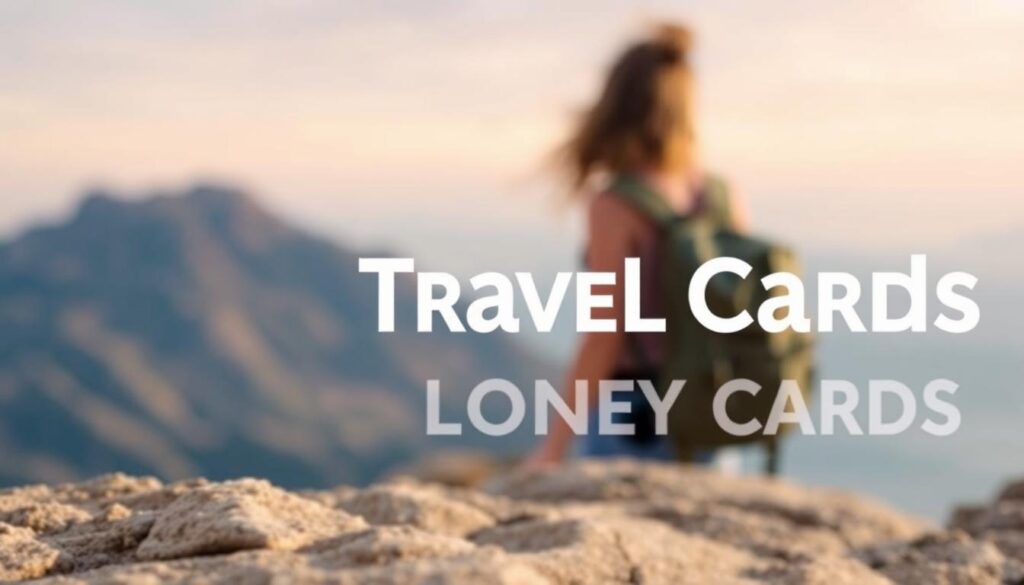
Managing your money wisely while traveling can significantly enhance your overall experience. As a backpacker, it’s essential to have a solid understanding of how to handle your finances abroad.
One of the critical aspects of travel finance is minimizing unnecessary fees. Currency exchange fees can be as high as 3% on top of other charges. To avoid these extra costs, consider using travel-focused credit cards or multi-currency accounts that offer competitive exchange rates.
When it comes to accessing cash, prioritize card payments over ATM withdrawals to reduce fees. However, always be cautious when using your card in unfamiliar places and inquire about potential surcharges. Some cards even offer cashback rewards, providing a small discount on your purchases.
For long-term travel, effective budgeting is crucial. Utilize tracking apps and allocate your funds into different expense categories to keep your spending in check. It’s also wise to have an emergency fund and know how to access money quickly in unexpected situations.
Understanding regional variations in payment preferences is also vital. Some destinations are more cash-friendly, while others prefer digital payments. Being prepared for these differences can save you money and reduce stress.
By following these tips and staying informed about the best banking options for international travelers, you can enjoy a more secure and financially stress-free travel experience.
Haggling Like a Pro: Cultural Guide to Negotiation
The ability to haggle effectively can significantly reduce travel expenses, making it a valuable skill for globetrotters. In many parts of the world, haggling is an expected norm, and failing to do so can result in paying more than necessary.
Understanding the cultural context of haggling is crucial. In some countries, it’s a friendly interaction, while in others, it might be seen as adversarial. For instance, in India, haggling is a way of life, and not participating in it can lead to paying significantly higher prices.
To haggle like a pro, one must be aware of the regional variations. In some cultures, starting with a very low offer is the norm, while in others, it’s considered rude. Practical haggling techniques include starting with a reasonable offer, making incremental concessions, and being willing to walk away.
| Region | Haggling Norm | Tips |
|---|---|---|
| Asia | Expected | Start low, be patient |
| Africa | Common | Build rapport, be respectful |
| Europe | Less common | Check prices first, be polite |
Effective haggling also involves understanding the psychology of negotiation. Building a rapport with the seller, showing genuine interest in the product, and maintaining a positive atmosphere can lead to better outcomes. Additionally, learning a few key phrases in the local language can go a long way in showing respect for the cultural norms.
When it comes to determining fair price, research is key. Knowing the average prices in the area can help you make informed decisions. It’s also essential to consider the ethical implications of haggling, ensuring that you’re not taking advantage of the locals.

By mastering the art of haggling, travelers can enjoy a more immersive experience, connecting with locals and exploring the culture more deeply. With these tips and an understanding of the cultural nuances, you’re ready to haggle like a pro.
Free and Low-Cost Activities Around the World
As budget travelers, we’re always on the lookout for ways to experience new destinations without overspending, and fortunately, there’s no shortage of free and low-cost activities to enjoy. Whether you’re exploring a vibrant city or immersing yourself in nature, there’s always something to do that fits your budget.
One of the most popular free activities is taking a free walking tour. These tours are available in almost every major city and are led by knowledgeable locals who share insights into the city’s history, culture, and hidden gems. To find one, simply search for the city name followed by “free walking tour” on Google. While tipping is not mandatory, it’s customary to show appreciation for the guide’s effort.
Many cities also offer free museum days or cultural events that are worth exploring. By doing some research before your trip, you can plan your itinerary around these events. Additionally, nature-based activities such as hiking, wild swimming, or stargazing are not only free but also provide unforgettable experiences.
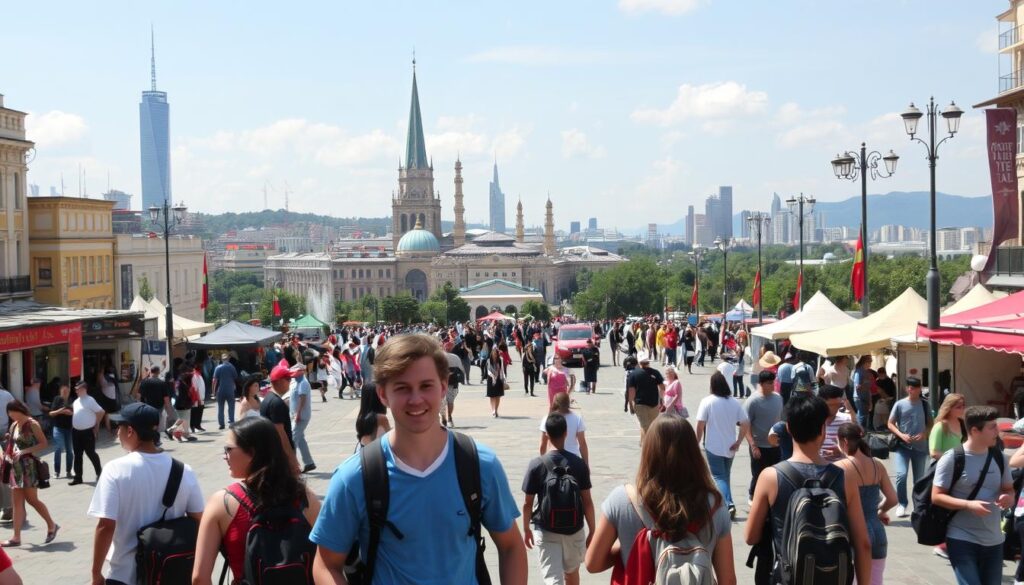
To maximize your travel experience, make use of the resources available at tourist offices, which often provide free maps and information. Moreover, consider using tourist cards or city passes, which can offer significant savings when visiting paid attractions.
| Activity | Location | Cost |
|---|---|---|
| Free Walking Tour | Major cities worldwide | Free (tips expected) |
| Museum Visit | Various museums | Free (on specific days) |
| Hiking | National parks and trails | Free |
By being mindful of these options and doing a bit of planning, you can enjoy a rich and fulfilling travel experience without breaking the bank. Whether it’s through organized tours or self-guided exploration, there’s a world of activities waiting to be discovered.
Extending Your Journey: Work and Volunteer Opportunities

Travelers can significantly enhance their journey by embracing work or volunteer opportunities, which offer a chance to engage more deeply with local cultures. By doing so, not only can they extend their travel time, but they can also gain valuable experiences and skills.
Integrating work or volunteer opportunities into your travels can be financially beneficial and can also deepen your cultural immersion and skill development. Common work exchange opportunities include working in hostels, teaching English, embracing digital nomad options, and taking up seasonal employment. These opportunities allow travelers to interact with people from diverse backgrounds and gain insights into different ways of life.
When considering work while traveling, it’s crucial to understand the visa requirements for your destination. Certain countries offer working holiday visas to citizens of specific countries, making it easier to legally work abroad. Ensuring you have the correct visa is essential to avoid any legal issues during your stay.
For those interested in giving back, legitimate volunteer opportunities can provide meaningful experiences while contributing value to local communities. It’s also worth exploring the growing digital nomad infrastructure around the world, including co-working spaces and communities that cater to remote workers.
Finding short-term gigs can be achieved through apps, bulletin boards, and word-of-mouth. Developing and marketing skills that are in demand can significantly enhance your chances of finding work opportunities abroad. Balancing employment and exploration is key to making the most of your extended journey.
Conclusion: The Richness of Budget Travel
Through the lens of budget backpacking, we discover that the true richness of travel lies in its experiences, not expenses. As we’ve explored throughout this guide, adopting a budget travel mindset can lead to more authentic and meaningful experiences.
The strategies and hacks shared here are not just about saving money; they’re about cultivating a way of traveling that enriches your life in profound ways. By embracing the challenges of budget backpacking, travelers foster personal growth, resilience, and problem-solving skills that extend far beyond the journey itself.
The connections formed along the way—with locals and fellow backpackers alike—often become the most treasured aspects of the travel experience. These interactions not only broaden our perspectives but also teach us valuable lessons about consumption, materialism, and what it means to live a rich life.
At CoWrit Technologies Inc, we can support your travel journey through services like travel content writing and digital marketing for travel blogs. We encourage you to take the first step toward your own budget travel adventures. Remember, the true value of travel lies not in how much you spend but in how deeply you engage with the world around you.
As you embark on your backpacking journey, you’ll find that the skills you develop—ranging from financial management to adaptability—will enrich your time on the road and beyond. So, pack your bags, and let’s start this journey together!
